Fiction
Kill the Courier | Part 5 – Is it Other Than Allah That You Fear?
Published

This is part 5 in a multipart series. You can find Part #1 here, Part #2 here, Part #3 here, and Part #4 here
Hassan had been fortunate enough to strike a deal with Alonzo King for the use of one of his dance studios. Alonzo was a legendary ballet trainer who owned six beautiful studios in the Odd Fellows Temple building at 26 7th Street. The studios had towering ceilings, arched windows and gleaming wooden floors. Hassan paid to use one of the smaller studios for ninety minutes every Tuesday and Thursday night.
He was not planning to teach class tonight, but the building was only half a block away, and he happened to know that Alonzo kept a locker full of first aid supplies in the fourth floor ladies’ restroom. Dancers were always getting hurt, so the locker was well stocked. He was fairly certain that the only active classes in the building tonight were on the third floor, so he could tend to his wounds in peace.
Keep supporting MuslimMatters for the sake of Allah
Alhamdulillah, we're at over 850 supporters. Help us get to 900 supporters this month. All it takes is a small gift from a reader like you to keep us going, for just $2 / month.
The Prophet (SAW) has taught us the best of deeds are those that done consistently, even if they are small. Click here to support MuslimMatters with a monthly donation of $2 per month. Set it and collect blessings from Allah (swt) for the khayr you're supporting without thinking about it.
He took the elevator to the fourth floor and used his key to unlock the ladies’ restroom. It was cold and smelled of strawberry air freshener. A thick-leafed plant dangled from the ceiling near the window, and a painting of a wild rose bush hung on the wall. Why are men’s restrooms never this nice? he wondered.
Because we’re Neanderthals, that’s why. Oogah, oogah. Hunt, kill, eat. Fight and shoot each other in dark alleys. For all our talk of civilization, we’re still primitives. Nice bathrooms don’t figure into our worldview.
There was a trace of bitterness and self-recrimination in these thoughts, and Hassan shut them down. He’d done what he had to do. He had little patience for self-pity, even in himself.
He removed his windbreaker – the left sleeve was badly torn – and stripped off his blood-soaked t-shirt. He held his arm over the sink as blood poured from the wound, staining the sink red. His exposed skin broke into goosebumps and he began to shiver violently, his teeth chattering. The bullet had gouged a furrow out of his forearm, maybe an eighth of an inch deep from wrist to elbow. It was a nasty-looking wound.
His right forearm already had a bullet scar from a through-and-through when he was fourteen years old. It was one of the reasons he always wore long-sleeved t-shirts, even in summer. Now he’d have matching scars.
In addition, he had six small scars from old stab wounds on his side and back, stemming from two separate knife attacks in El Reno. Between the punctures and stitches, the resulting scars looked like scattered sections of a miniature railroad track.
He disinfected the gash with iodine – it hurt but not as much as he expected – then applied a silver-based antibacterial ointment, using almost half the tube. He tried to control his shivering as he wrapped his entire forearm in a thick layer of gauze and used strips of waterproof medical tape to hold it in place. He knew he was feeling the effects of blood loss and post-injury shock, but he’d experienced it many times before and could work through it.
He turned his attention to his face, examining himself in the mirror. There was a small wound just below his left eye, and that side of his face was beginning to swell. The shot had barely grazed his cheek. As Hassan probed the damaged area with his finger, fresh blood ran down his face. He felt a sharp edge and realized that the bullet might have taken a small chip out of his cheekbone. Pain radiated into his skull and down into his jaw, growing worse by the second. An inch higher and he’d have lost the eye. SubhanAllah.
Again, he disinfected, cleaned and bandaged the wound, using a square flesh-colored bandage that would not be extremely noticeable.
His beard was matted with blood and his neck and side were streaked vermillion all the way into his pants. At least the pants were only slightly stained. The shirt had soaked up most of the blood. He washed his body as well as he could, running the water hot to warm himself. The mirror steamed and he wiped it clear, checking himself from various angles to make sure he’d gotten all the blood off.
As usual, he hated seeing himself shirtless. He had broad shoulders, a deep chest and muscular arms. With his shirt on he guessed he was handsome enough. Beneath the clothing, however, the huge tattoo he’d stupidly acquired at the age of twelve sprawled across his chest, depicting an automatic pistol with five bold words written beneath it: “YOUR GUN IS YOUR LIFE.” Those words taunted him and sneered at his desire to be a better man.
Only a few inches from the barrel of the tattooed gun, a massive scar disfigured the right side of his chest, evidence of the bullet that had torn its way out after entering through his back. The hole in his pectoral muscle was big enough to lay two fingers in. One could almost imagine that the tattooed gun had shot a piece of his body away. He was aware of the irony.
The other tattoo was equally loathsome, though not as ostentatious. Black ink circled his right biceps muscle, depicting a scaled dragon eating its own tail. An ouroboros. Hassan despised it, and never let anyone see it.
This was another reason why marriage to Jamilah seemed an impossible fantasy. There was the matter of his shameful past, and the lies he had told. But there were also these tattoos, and this disgusting hole in his chest. He felt deeply embarrassed at the thought of letting anyone see his body, let alone a Muslim woman to whom such tattoos would be abominations.
A few years ago he’d consulted a dermatologist who specialized in laser tattoo removal. The doctor did a test removal on a portion of the gun tattoo. Hassan’s skin reacted badly, and now the corner of the gun butt was obscured by an ugly lump of scar tissue.
I’m like a circus freak, he thought. Step right up, ladies and gentlemen! Put your fingers in the hole in Tattoo Boy’s chest! Only five dollars.
He remembered how the Armenian had ordered him to pull up his shirt. No doubt Sarkis had briefed him on what to look for. After all, Sarkis was the one who had dragged Hassan into the tattoo parlor on Hamra Street in Beirut all those years ago. And though Sarkis had never seen the chest scar, he would know what to look for. He was the one who’d put it there.
As soon as Sarkis spoke to the Armenian he would know that Hassan’s identity had been verified. That could happen at any moment.
Looking in the first aid locker, Hassan found a large bottle of ibuprofen. He popped four tablets into his mouth, washing them down with tap water from the sink. He saved another eight pills in his pants pocket for later.
He washed the blood-soaked shirt and windbreaker in the sink as well as he could, then wrung them out and stuffed them in his bag. He tore several paper towels off a roll that stood on the toilet tank, used them to wipe the blood from the floor, and put them in the toilet, flushing them two at a time so as not to clog it. He carried a spare long-sleeved t-shirt in case he got soaked in a rainstorm – a common occurrence in San Francisco – and he pulled it on, grimacing in pain as he slid his wounded arm through the dark blue sleeve. He checked himself in the mirror. The bandage and swelling on his face could have resulted from a normal workaday fall. You’d never know he’d just been shot – twice! As he stood in the cold restroom shivering, the right side of his face burning with pain and his forearm throbbing as if electrified, Hassan grinned. Life was a funny thing.
***
He might as well look in on his class. He went down a flight of stairs and knocked on the locked door where his class was in session. Sister Ayah, a Bosnian woman in her thirties, let him in.
This Tuesday night class was different from his Thursday session, which was open to all. This class was for Muslim women only. In the last four years it had grown from two sisters to fourteen. They ranged in ages from fifteen to forty three. Some wore hijab and some did not. Two were African-American and the rest were first and second generation immigrants from Iraq, Bosnia, Yemen, Palestine, Egypt and Sudan.
He never would have started this class of his own accord because he never imagined the Muslim community would accept it. But four years ago one of the Yemeni brothers from the mosque saw him practicing at Jackson park. He introduced himself as Abu Fatimah and asked if Hassan would teach his two teenage daughters. The elder daughter had been assaulted at school when a group of boys tore off her hijab and called her a terrorist.
Abu Fatimah’s only condition was that Hassan not physically touch his daughters. At the time Hassan wondered if it would be possible to teach that way. Silvertip Hapkido was a tactile, hands-on art, based on defending against punches, kicks, grabs, chokes and even knife attacks. He took the challenge and taught by demonstration only. When necessary he brought in an advanced female student from the Thursday class to work hands-on with the ladies. The eldest of the two Yemeni sisters, an 18 year old named Fatimah, had natural physical talent and progressed quickly. Word got out among the Muslim families and the class began to grow.
As Hassan had feared, the conservative members of the community were hostile. An elderly Palestinian accused him of corrupting young women. An Egyptian man called him a pimp and tried to strike him after evening prayer. It wasn’t long before Imam Salman called Hassan for a meeting. Hassan explained what he was trying to do and asked Salman to come watch a class. He did so, and he seemed to understand that Hassan wasn’t teaching the women to reject religion or to hate men – in fact they began every class with a recitation of Surat Al-’Asr, chapter 103 of the Quran. Rather he taught them to be courageous in their faith and their lives, and never to allow themselves to be abused. He taught them that if they could master something as difficult as martial arts then they could achieve anything.
Since then, Imam Salman had actually referred women to Hassan’s class from time to time.
Hassan didn’t want to abandon these women. He’d done a lot of wrong in his life, and he didn’t have so many good deeds to his credit that he could afford to let something so vital slip away.
Fatimah, Hassan’s assistant instructor, was partnered with another student, demonstrating a technique as the others stood in a circle, watching. Over the years Hassan had seen her come into her own as a martial artist and as a woman. In her twenties now, she was tall for a Yemeni woman, almost matching Hassan’s height. Her well wrapped hijab and loose Adidas track suit allowed her to move freely. She turned and saw him, and saluted.
The Korean tradition – Hapkido was a Korean art – was to bow, but Hassan knew that many Muslims objected to bowing. They saw it as a form of worship. He didn’t see it that way himself – in East Asia the bow was a universal gesture of greeting and mutual respect – but to accommodate the Muslim sensibility he had replaced the bow with a traditional Southeast Asian salute, with the palms pressed together and raised to the forehead.
He returned Fatimah’s gesture.
“Water break!” she called out, and jogged over to Hassan. Immediately her face registered alarm. “Your face! What happened? Was it the earthquake?”
“It’s okay,” Hassan said. “Not a big deal. How’s class going?”
Fatimah nodded her head. “Good, Alhamdulillah. We warmed up, ran through basic strikes and blocks, and I’ve been taking them through arm bars against grabs.”
Hassan nodded. “Very good. Please continue.”
Fatimah jogged back to the front of the studio and clapped her hands twice. Instantly the women set down their water bottles or stopped their stretches and circled around.
“Ustaz will take over now,”’ she announced. She gestured to Hassan.
Hassan shook his head and held out his palm. “It’s your baby tonight. I’ll just observe.”
Fatimah looked startled. “Okay Ustaz,” she said.
For the next half hour Hassan watched as Fatimah conducted the class with confidence and authority. When she clapped her hands the women came instantly to attention. As the women practiced Fatimah circulated among them, correcting one woman’s foot posture, showing another how to apply an arm bar more effectively, telling another to relax her muscles and flow with the movement. Her voice was soft but firm. Most of the women were older than her, but they never argued or expressed doubt in her teaching.
The art itself was a striking, joint locking and throwing style that Hassan had created himself, and dubbed Silvertip Hapkido. Over the years he’d blended Korean Hapkido with Japanese Jujitsu, and added principles and techniques based on his own combat experiences. He emphasized speed over strength, relaxation over rage, and visualization as a tool for controlling fear. He believed it was a good art, worthy of being passed down to his children some day, Insha’Allah.
As he watched Fatimah teach, he felt a wave of pride like an ocean inside him, filling his chest. Silvertip Hapkido would survive and thrive in her hands, he was sure.
When the clock on the wall showed five minutes remaining, Hassan walked to the front of the studio. Immediately Fatimah clapped her hands twice and the women gathered around.
“As-salamu alaykum wa rahmatullah,” Hassan said. The women responded to his greeting in unison, enthusiastically.
Hassan was silent for a moment. He looked down at his feet and to his embarrassment a tear streamed from one eye and ran down his cheek. He wanted to speak but was afraid he would choke up. He held his hand up to beg the women’s patience.
“I am very, very proud of you all,” he said, and the tears began to run freely now. “I truly have no words. Some of you have lived hard lives. And you’ve endured criticism and opposition in attending this class. But I’ve seen over the years how you’ve all become stronger. You’re an inspiration. I hope Insha’Allah that this class has made your lives better in some way, that it’s brought you comfort and confidence. Personally, I can’t tell you how much this class means to me.”
His voice hitched and he paused to wipe his nose with his sleeve. He had never spoken to the women in this way, but he was suddenly considering the prospect of having to abandon this class, and never seeing these students again. He hadn’t realized until this moment how much their struggles meant to him. He glanced up and saw that some of the students looked embarrassed, while others had begun to weep. He made an effort to pull himself together.
“I may have to leave this class.” The women broke into a chorus of protests, until Hassan held up his hand for silence.
“I don’t want to. But I’m going through some turmoil. If it turns out that I cannot continue teaching, the class will continue under Fatimah. Pay your monthly dues to her, in her name. Fatimah, you are hereby promoted to full instructor.”
“But Ustaz,” Fatimah objected, her eyes wide, “I -”
“You can do it,” Hassan said. He addressed the women again. “I know that all of you will continue to give Fatimah the same respect and deference that you have given me. Am I right?”
“Yes, Ustaz,” the women said together.
“Last thing,” Hassan said. “I’ve been thinking lately about an ayah from the Quran, in Surat an-Nahl. The Bee. Allah says, ‘Wa lahu maa fis-samawaati wal-ardhi, wa lahud-deenu waasibaa; afaghayrullahi tattaqun?’ ‘And to Him belongs whatever is in the heavens and the earth, and to Him is due worship constantly. Then is it other than Allah that you fear?’”
“That’s the thought for the day. Our only Master is Allah. If He is with us then all the enemies in the world can’t touch us. Be fearless and brave as I know you are. Be mothers, wives, daughters, doctors, writers, filmmakers, senators… whatever you aspire to or dream of. When the world says no, you say yes! Be truthseekers. Be champions. Be believers. Will you do that?”
The women, some with tears on their faces, shouted, “Yes, Ustaz!” The studio rang with the joyous, powerful sound of their voices.
“Class is dismissed,” Hassan said.
***
He left the building and cruised down the sidewalk on the east side of 7th Street. Glancing across 7th and up the alley, he saw the black sedan still sitting silently in the darkness. There was no sign of cops. Unbelievable. You couldn’t walk into a donut shop in this town without being observed suspiciously by the inevitable cruller-munching beat cop, but call them to report two men tied up in an alley and they took their sweet time. He gazed at the sedan. The Armenian was undoubtedly still in the trunk. Hassan could drive him somewhere and force answers out of him. But it was an idle thought. He’d already rejected that path.
He would go to Tu-Lan after all. He needed to speak to his friends. First, however, he had to make a call. He couldn’t ignore the Armenian’s words. He must know if this Crow was real.
He rode home, circling through U.N. plaza once, and then pausing at Hallidie plaza to survey the street. He was certain there was no one following.
As he arrived at his apartment building he thanked the doorman who held the door open, nodded to the concierge, and took the elevator to his apartment. He made it a point to know the building staff, mainly so that he would be alert to any unfamiliar face. There were always at least two security guards on staff, one in the security office watching the monitors and one roaming the grounds. Sometimes he brought them donuts and chatted with them about the doings in the building.
The lobby elevator only went as high as the 35th floor. From there Hassan walked down the hallway to the executive elevator. Inside it, he slid a keycard through a magnetic reader, entered his personal security code and pressed 39.
His apartment door was double locked and required two separate keys. Once inside he punched in the security code on a keypad in the entryway. If the correct code was not entered within thirty seconds, an alarm would sound and security would be notified.
He changed into a clean pair of pants, and left his shoes in the bathroom’s second sink. Blood had run all the way down his body into the shoes, staining the tops and the insoles. He performed wudu’, wiping gently over the bandages on his face and arm, then put on a clean pair of pants.
He had a sudden, frantic thought. Retrieving the bloody pants, he dug his wallet out of the front pocket. It was slick with blood. He opened it with trembling hands. Some blood had gotten onto the ID and business cards, but he didn’t care about that. There was a zippered pocket in the lining, and Hassan opened it and removed an old black and white photo – the one he’d been gazing at in the park when Jamilah arrived. It was slightly creased in places and worn around the edges, but it had not suffered any further damage, and Hassan breathed a sigh of relief.
The photo was sixteen years old. In it, Lena stood in front of an easel, pointing a paintbrush at the camera and looking annoyed. It was the only photo of her Hassan possessed. She hadn’t wanted him to take the picture, he remembered, because she thought she was a mess. She wore no makeup, had a paint stain on her cheek, and her long blonde hair was tied back in a ponytail. She was slender as only a young woman can be, standing barefoot on the tiled floor, dressed in simple jeans and a t-shirt. She had been older than him, but now she looked so young. And she would never get any older. She would never paint again, never have a child, never read poetry to Hassan as he practiced martial arts on the threadbare living room rug. Never have a chance to follow him to Islam.
Hassan puffed out his cheeks and let out a big breath. He had to stop torturing himself this way. Whatever Allah decreed had come to pass, and he couldn’t change it. No one could. He had to think about the future, and the people he loved who were alive now.
He put the photo away and returned to the living room. The apartment was quiet. He would have loved to have a cat, but he spent so much time away from home that it wouldn’t be fair to any pet. Plus, a cat needed grass, trees and sunshine, not this sanitized shelter in the sky. When he was a kid he’d been an aquarium aficionado, with a tank full of beautiful tropicals, and he’d considered setting one up here was well. But… he couldn’t explain it, even to himself, except that such attachments had brought him pain in the past.
He set the musalla down on the living room rug and prayed ‘Ishaa. Time seemed to slow as he prayed to Allah for forgiveness and mercy. He was conscious of how close he had come to losing his life. One day he would not be so lucky, and instead of praying to Allah he would be standing in front of Him, accounting for every deed. Would that be a good day, or the beginning of a long and tormented existence? The question frightened him.
After prayer he sat on the musalla, thinking. The Armenian should not have missed. All these diplomatic operatives were either former military or trained spies. Maybe Hassan’s comments had rattled him, or maybe he’d been caught by surprise. He’d reacted very strangely to Hassan’s little story about Sarkis’ attempted rape of the Armenian girl. Or – the truth was so obvious Hassan should have thought of hit earlier – the Armenian had not been shooting to kill. He’d been instructed to take Hassan alive, obviously – hence the zip ties.
He took his phone out of his pocket and dialed a number with a 714 area code – Garden Grove, California, just south of Los Angeles.
“Hello?” It was a woman’s voice, one Hassan knew well. He cared about her and would have enjoyed talking to her under different circumstances. With the potential danger of this situation, however, he wanted to involve as few people as possible.
“Hello,” Hassan said. “Dr. Basim please.”
“Who is this?” the woman inquired.
“It’s Hassan.”
There was a pause. “Simon?” the woman said hesitantly. “Is that you?
Hassan sighed. “Yes, Tant Nisreen,” he said. Aunt Nisreen persisted in calling him Simon, even though he had asked her not to. She was not really his aunt of course, but her son Motaz had been Hassan’s childhood best friend for years.
“It’s so good to hear from you!” said Tant Nisreen. “How are you?”
“Fine, thank you,” Hassan replied automatically. “Is Dr. Basim home?”
“Yes, I’ll get him. And Simon – we all love you. Motaz still talks about you.”
A moment later a pleasant, surprisingly high-pitched but still unmistakably male voice said, “Hassan? Is that you?”
“As-salamu alaykum Dr. Basim,” Hassan said. “Yes, it’s me. Ammu, no disrespect, but please ask Tant Nisreen not to use that other name. No one has called me that in years, and it’s not safe, especially not now.”
“What’s going on?” Dr. Basim’s voice was lower now, his tone guarded. “Is something wrong?”
“Do you still have contacts in the old country?” Hassan asked. “Can you get me information about someone?”
“Yes, I believe so,” Dr. Basim said.
“Okay. Alhamdulillah. Listen Ammu, you must be very discreet.”
“Very well,” Dr. Basim said. “Who is it?”
“I need to know everything about a supposed hashishi – and I mean that in the ancient sense – called the Crow.”
Hassan was confident that Dr. Basim would understand his reference to the ancient hashshashin, the cult of assassins who operated from the mountains of Iran a thousand years ago. He did not want to say the word “assassin” over the phone. He was aware that the American government had powerful computer programs that monitored telephone conversations and listened for certain key words.
“Ya khabar iswid!” Dr. Basim exclaimed. “You have been discovered?”
“Have you heard of him?”
“I have heard… rumors. I would need time to obtain hard information.”
“I need it by tomorrow morning,” Hassan said. “It’s important.”
“Very well. I will call you when I have something. Take care, son.”
Hassan ended the call. He passed his hands over his face to smooth down his goatee – a habit he found soothing – and got a shock of pain when he touched his wounded cheek. With the ibuprofen kicking in, he’d almost forgotten the wound, though he could feel the pressure of the facial swelling.
He’d had always believed in making choices in life and moving forward. The ends belonged to Allah, and one must never stop asking for guidance. But one must also take action. One must live. Do.
Now, however, Hassan did not know what to do. He had just begun to allow himself to dream of a life here. A real life, with friends and, oh, let’s be honest, a wife. A family. What an incredible thing that would be. He’d never have thought it possible, but here was this woman who was so strong, maybe strong enough to take what he had to give. Jamilah. A wall that evil cannot pass; a patch of sunlight on the grass; a place to live and laugh. He didn’t think that Lena would begrudge him the desire to love and be loved. She would want him to be happy. But now he felt it slipping away, like the oft-imagined monster earthquake that would break California off from the continent and send it crashing into the sea.
He was deeply tired, and the ibuprofen was making him sleepy. He lay on his side on the musalla, intending to close his eyes for just a moment then get up and go to Tu-Lan. It was time to talk to his friends. What would they think? Would Jamilah hate him? Would they all reject him? They were so precious to him. He couldn’t lie to them for another day. He needed them. It was hard to admit that to himself, but he needed them. The ends are with Allah, he thought, just before he drifted off to sleep. Do the right thing, and leave it to Allah.
The dream came. It had haunted him for so many years, and was always the same. He was back in the Karanlik mental hospital in Turkey, locked in a bare, damp cell. No bed, no sink, no toilet. Nothing but a filthy hole in the ground for waste. He was perpetually thirsty, to the point where he would lick the damp walls for any trace of moisture, sometimes ingesting flecks of paint. He knew from experience that banging on the door and begging for water was useless. Many times, his tongue swollen and his eyes unable to focus for lack of moisture, he’d been convinced that he would die of thirst. He would have welcomed it.
They came for him. The burly orderlies restrained him as he resisted weakly, and dragged him down the hall to the “treatment room.”
“No more,” Hassan begged. “Please.” He knew what was coming.
He had come into Karanlik asylum an emotional wreck to begin with. The near-starvation, thirst, and multiple sessions of convulsive Metrazol “therapy” – little more than torture – had broken him, figuratively and literally – he’d broken a hand and a leg during the convulsions, and torn one of his biceps muscles in two. When he wasn’t being tortured he was in isolation, his only company a television monitor mounted high in the corner that played around the clock, looping a lecture about how secular values were central to mental health and good citizenship.
Many years later he learned that almost all other institutions had abandoned Metrazol in favor of electroshock therapy. He did not know why Karanlik had continued to use it.
In Karanlik, Hassan teetered on the brink of madness and suicide. He had nothing left with which to fight. The doctor had finally told him that this was, in fact, the goal. They would destroy his old religious self and build a new, secular man. But Hassan had seen other long-term inmates gibbering and drooling. They were walking skeletons, gone from the realm of sanity forever. He knew that would be him soon.
This time, however, lying on his musalla, and perhaps – he thought later – watched over by angels, the dream changed. Instead of the horror that normally followed, the door opened onto a garden filled with light. He knew this place. He’d been here once before, as he lay dying in a cold river in Syria. His father stood in the center of the garden. He wore his gas station uniform and his face was young and unlined. There was something different about him, and after a moment Hassan saw what it was. He wasn’t using his cane. He stood straight and tall, smiling at his son.
“It’s alright, my son,” the dream father said. “You are pure and beautiful in my eyes. I love you. Stay strong, my son. Allah is still with you.”
“Baba,” Hassan tried to say, but his voice came out as a croak. His father reached into the fountain that bubbled in the center of the garden, filled his hands with pure water, and held them out to Hassan, who bent and drank gratefully. The water was so sweet and life-giving that it made him cry. As he drank, a sense of hope filled him. He had not felt hope in a long time, but he felt new strength entering his body, as if the water were filling him with light and power.
He realized in that moment that he would live. Karanlik would not kill him. He would survive.
Suddenly he was awake, his face wet with tears. He had rolled onto his injured arm in his sleep and it pulsed with pain.
He sat up on the musalla, burying his face in his hands, then winced when he touched his wounded cheek. He had to stop doing that. He wanted to break into sobs – he could feel on ocean of tears waiting to flow. He wanted to seclude himself for days and just rest, pray, and think. He had seen his father, and the man had looked strong and full of light, and had spoken of Allah. What did that mean? And what did it mean that he had seen his father now, after the events of this day? He wanted to meditate on it, figure it out…
But he had places to be, and things to do. He dried the traces of tears from his cheeks and stood slowly.
In the restroom he checked his wounds. The bandages on his cheek and arm had both soaked through with blood. Gingerly, feeling the pain even through the dulling effect of the pain medication, he cleaned the wounds and applied new bandages.
He put on a clean pair of shoes and wheeled his bicycle out the door, activating the alarm and locking the apartment behind him. He was ready for Tu-Lan’s delicious shrimp fried rice, a scoop of ice cream with a sugared banana, a can of Pepsi – he needed the caffeine – and the company of friends. Whether they would still be his friends tomorrow, after he told them the truth about his past, he did not know.
Next: “Dispatch Wizard” Part 1 – The Funny Brother
For a guide to all of Wael’s stories in chronological order, check out this handy Story Index.
Keep supporting MuslimMatters for the sake of Allah
Alhamdulillah, we're at over 850 supporters. Help us get to 900 supporters this month. All it takes is a small gift from a reader like you to keep us going, for just $2 / month.
The Prophet (SAW) has taught us the best of deeds are those that done consistently, even if they are small. Click here to support MuslimMatters with a monthly donation of $2 per month. Set it and collect blessings from Allah (swt) for the khayr you're supporting without thinking about it.
Wael Abdelgawad's novels can be purchased at his author page at Amazon.com: Wael is an Egyptian-American living in California. He is the founder of several Islamic websites, including, Zawaj.com, IslamicAnswers.com and IslamicSunrays.com. He teaches martial arts, and loves Islamic books, science fiction, and ice cream. Learn more about him at WaelAbdelgawad.com. For a guide to all of Wael's online stories in chronological order, check out this handy Story Index.


I’ve Converted, and It’s Christmas…

The Coddling Of The Western Muslim Mind: [Part II] The Islam Of Emotionalism

Family Troubles Of The Prophets: A MuslimMatters Series – [Part II] My Kids Are Out Of Control

Cutting It Fine: Outgoing American Government Announces Campaign Against Islamophobia

The Coddling Of The Western Muslim Mind: [Part 1] The Cult Of Self-Esteem

Safeguarding Children In Today’s World: An Islamic Perspective On Child Sexual Abuse Prevention And Protection

International Criminal Court Warrant Galls Genocidaires

The Fall Of Barsisa: Lessons On Spiritual Corruption And The Abuse Of Religious Authority

[Podcast] Navigating Christmas: Advice to Converts, from Converts | Hazel Gomez & Eman Manigat

Groundbreaking New Forensic Report Maps Israel’s Genocide On Gaza

Study Classical Texts The Traditional Way [Session 1] | Sh. Yaser Birjas

Sami Hamdi: “Muslims Must Abandon Harris” | Transcript and Summary

IOK Ramadan: The Importance of Spiritual Purification | Keys To The Divine Compass [Ep30]

IOK Ramadan: The Power of Prayer | Keys To The Divine Compass [Ep29]

IOK Ramadan: The Weight of the Qur’an | Keys To The Divine Compass [Ep28]
Trending
-
#Culture1 month ago
[Podcast] How To Free A Jinn & Other Questions | Ustadha Raidah Shah Idil
-
#Islam1 month ago
Study Classical Texts The Traditional Way [Session 3] | Sh. Yaser Birjas
-
#Life1 month ago
Ensuring The Safety Of Our Communities: A Call For Immediate Corrective Action From American Muslim Organizations
-
#Life1 month ago
Processing Spiritual Abuse In Islam: A Comprehensive Guide For Individuals, Communities, And Organizations
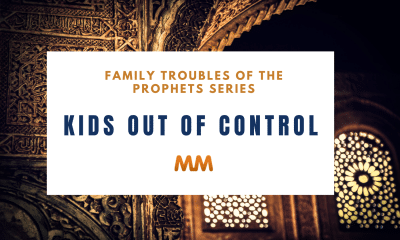


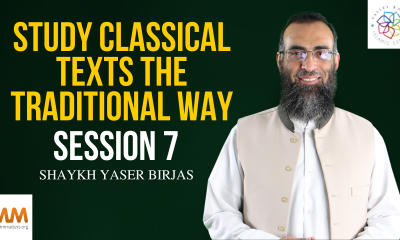

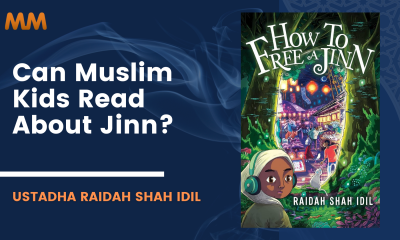

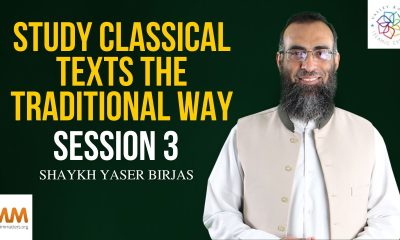

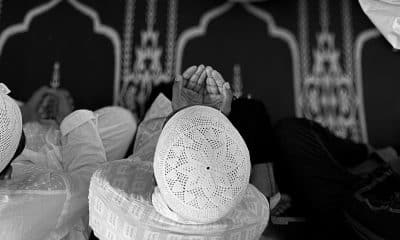

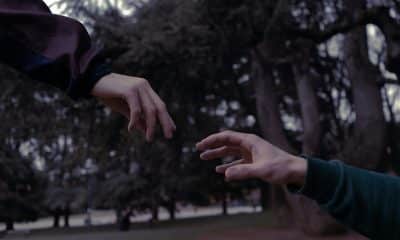

BintB
March 12, 2014 at 4:11 AM
MashaAllah, MashaAllah, MashaAllah ya Rabb!!! JazakAllahu khayran for the story Akhy. Just can’t wait to see how these mysteries around Hassan are going to untangle.
This really is an exercise of patience for us readers, for Wednesday seems so far away each time; inshaAllah khayr… looking forward to it!
Rabya
March 12, 2014 at 5:57 AM
Ma shaa Allah! Nice! Always a pleasure reading…the plot thickens!
iffat sharif
March 12, 2014 at 9:41 AM
As salam brother !!! your writing is amazing!! subhanallah…..keep them coming!! in more amount.keep writing this awesome….you are going to be a celebrated writer!! bring out ur book (or should i say books in’sha Allah;)…..the timely reminders from qur’an,the ayaat of Allah azzawajal,the hadiths that you slip in -they make the best part of your novel Alhamdolillah.this story inspires me,to be a better human being.Alhamdolillah. And the humour is like cherry on the cake !! :) “One could almost imagine that the tattooed gun had shot a piece of his body away. He was aware of the irony.” Jazak Allahu khairan
Humaira Khan
March 12, 2014 at 10:21 AM
Beautifully written! I absolutely loved this part!
Humaira Khan
March 12, 2014 at 10:57 AM
I have a question: how many stories did you write before your writing reached this level? I’m asking because I find my own progress so slow!
Wael Abdelgawad
March 12, 2014 at 12:42 PM
Humaira, I wrote the usual childish stories as a kid, and I tried writing a few stories in my teens but they were terrible. In my late 20’s I joined a writer’s group and began writing fiction again, with the support of the group. The stories were okay, I think – good but not great. Then I left off for a long time, and only resumed the fiction writing two years ago. But in these last two years I’ve learned a lot. I also continue to “study” writing – I read WritersDigest.com, and I check out books on writing from the library. The main thing, however, is practice. Write every day, and you will get better Insha’Allah.
Humaira Khan
March 12, 2014 at 2:00 PM
Thanks! It’s good to know that with practice one eventually gets there – but I feel talent has a lot to do with it too because some writers never reach that level. I’ve got to the stage where I can tell what’s wrong with my work/character/plot, but it’s slow work adding the missing ingredients. I suppose I’ll stick to your advice and keep practicing. Thanks again!
umme Ibrahim
March 12, 2014 at 12:04 PM
this is PURE TORTURE!!! that we have to wait for a full week to find out what happens next!! the story line could not have been better!! superb! please keep these thrillers coming!! we need to read more of your writings! may Allah give you Barakah in your time and resources brother so you can spare more time and efforts for writing to inspire all!
I simply love the way Hassan keeps recalling particular verses from the Holy Quran that are relevant to his current situation… and that only happens when one is in regular contact with teaching and/or learning the Quran! that Allah guides us in our everyday decision making directlt through His divine words! may Allah grant us all the toufiq to develop that special bond with Allah through the Quran, so that we keep getting divine guidance every step of our lives!
btw, I am so tempted to learn martial arts myself after the description of Hassan’s class!! where do I find an instructor like him now??
Wael Abdelgawad
March 12, 2014 at 12:45 PM
umme Ibrahim, if there are other sisters in your area who are interested in learning, you might be able to arrange an all-female class with a female instructor. If you visit a few of the local martial arts schools, you’ll undoubtedly find a few female instructors.
SH
March 12, 2014 at 9:24 PM
I have been reading your stories since the beginning but never commented. Mashallah brother your writing is truly engaging and thought provoking. While we read how the companions used to achieve calm through prayer, its totally different when a novel character runs through the process! I found myself wondering about this long after I finished reading. May Allah give barakah in your writing.
You do realise, typical novel readers are different from typical blog readers right? Your instalments are too short and too infrequent for novel readers! In this episode and last episode, I found the descriptions of the fights, wound cleaning etc were detailed enough to be engaging in a novel, but when we only get to see through a small window every week, those descriptions felt like space wasters! I want to know what happens at the end already! I suppose its telling you two things, 1. you have a very good plot mashallah, 2. you should write more frequently!
Wael Abdelgawad
March 14, 2014 at 2:00 PM
Your points are well taken. There is a long tradition of novels being serialized in newspapers or magazines, but blog readers may not be used to such things. However, you are under the impression that MM publishes each new chapter as I write it. That’s not the case. I actually have many chapters written in advance, but we are on a weekly publishing schedule here.
Sarah B.
March 12, 2014 at 11:13 PM
Subhan’Allah this story just keeps me in suspense! I want so badly for things to work out for Hassan. It seems he has had a rather difficult life and deserves a bit of peace and happiness in life. Now I can’t wait for the next story!
Bint A
March 13, 2014 at 1:56 AM
This entry touched me. There was just something so real and relatable about the human condition in Hassan’s personal state of life, of mind, of memories that really struck a chord. It’s beautiful how you can weave together these universal states and feelings in your tale that speak to the essence of human nature…
Don’t know if my comment made sense… but there was just something very sincere, deep, and moving about this entry. Though Hassan is a fictional character there seem to be very many “truths” behind his intricate development. A genuine character as they say…
wael77
March 17, 2014 at 1:36 AM
Yes, your comment makes perfect sense. Hassan reveals a lot of himself in this entry – figuratively and literally – and he is shown to be emotionally vulnerable and even fragile in some ways, in spite of his physical strength. Thank you so much for your comment.
Bint Kaleem
March 15, 2014 at 4:31 AM
JazakAllah Khair.. I had tears too when he gave his class that speech.. Simple words yet powerful.. All the nuances in characters stand out so well Masha Allah.. I could actually imagine how ‘ammu’ must sound like..
sana
March 15, 2014 at 4:43 PM
Question: why doesn’t Hassan get his tattoos removed if he doesn’t like them so much, and are dangerous for him to have?
just a thought that bugged me while I was reading.
Great story, mashallah! look forward to reading more next week! :)
Wael Abdelgawad
March 15, 2014 at 7:07 PM
Good question, Sana. As it happens, Hassan saw a dermatologist in 2007 and had a test removal done on a portion of the gun tattoo. His skin reacted badly and he developed some bad scarring. This happens sometimes with tattoos that are heavily blue or black, as Hassan’s are.
Perhaps I’ll write this into the story.
Rabya
March 19, 2014 at 5:49 AM
Sniffffff!!! Where is part 6????
SZH
March 19, 2014 at 6:30 AM
Waiting for the “The Funny Brother”…
I’m forced to visit this page for 6 hours.
umme Ibrahim
March 19, 2014 at 8:12 AM
I have been coming here since early morning looking for part 6….. where is it?????
umme Ibrahim
March 19, 2014 at 9:27 AM
so there is no part 6??? the index says its Mohammad’s story next… so when is ‘The Funny Brother’ coming???
wael77
March 19, 2014 at 10:13 AM
Sorry, it was supposed to come out today. I think there’s been a misunderstanding or scheduling mixup. I’ll check with the staff, Insha’Allah.
Rabya
March 19, 2014 at 11:04 AM
Any update brother?
szaharna
March 19, 2014 at 2:03 PM
MM – please publish this!! I can’t refresh my page any longer :)
Wael Abdelgawad
March 19, 2014 at 2:40 PM
Dispatch Wizard Part 1 is up now! Sorry for the delay. http://muslimmatters.org/2014/03/19/dispatch-wizard-the-funny-brother/
Sadia Anwar
August 19, 2014 at 2:53 AM
MaShaAllah! I’m hooked.
Is there a way to download these so I can read offline??
Yuliawati
November 30, 2018 at 12:02 PM
MashaAllah, MashaAllah, MashaAllah ya Rabb!!! JazakAllahu khayran for the story Akhy. Just can’t wait to see how these mysteries around Hassan are going to untangle. travelumroh165.com